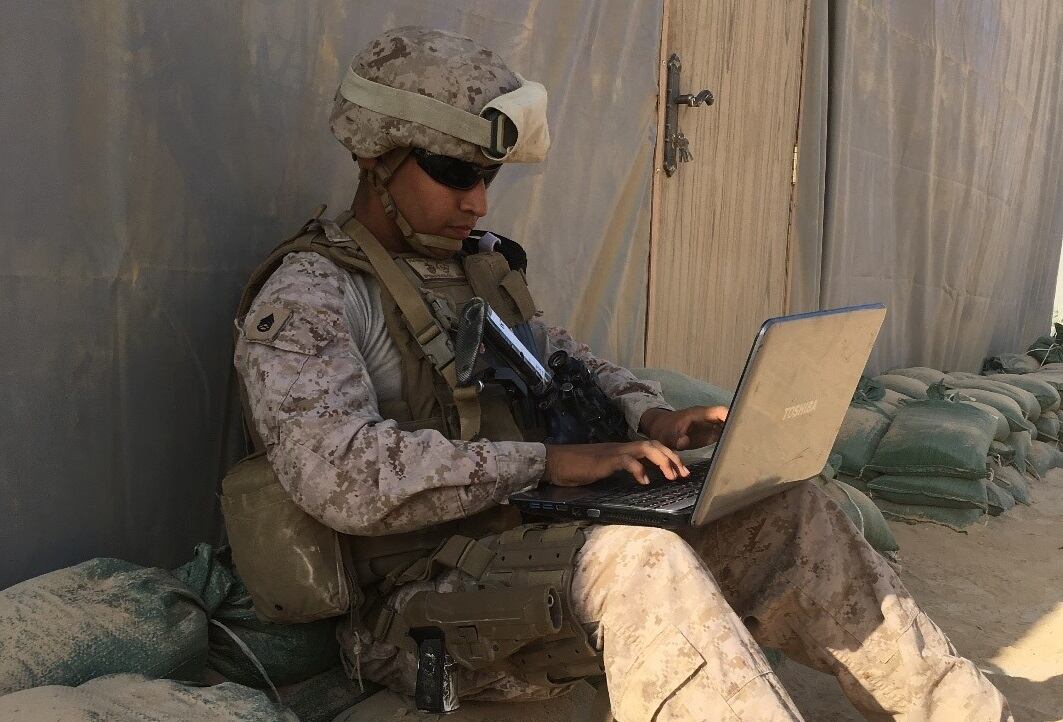Trained as humble leaders who work well in a team environment, U.S. military veterans often can climb the corporate ladder at a lightning fast pace.
In the 1980s around 60 percent of all Fortune 500 CEOs had military experience. But in recent years, only 8 percent did.
Are transitioning military leaders no longer cutting it as leaders in the business world, or is something else dissuading them from entering the industry?
As an entrepreneur and active-duty Marine transitioning back into the civilian world, the cost of paying for a top school that will get me where I want to be is daunting.
RELATED

After gaining admission into my No. 1 choice MBA program at Cambridge University I immediately sought out opportunities to fund it.
Many military veterans are doing the same. Given the tumultuous times brought on by the global Covid-19 pandemic, many transitioning veterans are opting to seek out higher education instead of an alternate career outside of the military.
However, the G.I. Bill alone cannot merely offset the rising costs of private education. For example, a top-20 MBA program can cost up to $237,000.
The cost of such programs can often deter some of the best candidates from attending if they aren’t able to receive some form of financial assistance.
The best applicants
Top MBA programs are competing against each other for the most impressive candidates. After all, the legacy and prestige of the school relies heavily on a school’s alumni. A strong academic record and top-notch test scores will get your name in consideration, but a candidate really needs to be well-rounded to get accepted.
In addition to evaluating a student’s test scores and grades, a top MBA program will consider whether the student has a history of making meaningful contributions to the organizations where he or she has worked.
The aim of business schools is to prepare students to thrive in the business world, as such, these schools seek applicants with the leadership skills necessary to succeed in business.
Meaningful organizational contributions and undeniable leadership skills are just two ways every transitioning U.S. Marine Corps veteran can add value to a diverse MBA cohort.
From strong leadership skills to creativity, resiliency, adaptability and perseverance, Marine Corps veterans have many of the attributes required to be successful both in the military and in business.
The opportunity cost of forgoing a career with an immediate salary to attend an expensive, full-time MBA program is enormous.
MBA candidates have to find a way to pay not only for high tuition, but also the cost of living without the assistance of an incoming salary. This can be an especially difficult challenge for transitioning military veterans who have spent the most recent years living a life in service to their country with a very modest income.
Most veterans will qualify for the G.I. Bill, and additional assistance from the Yellow Ribbon program. However, the G.I. Bill only covers a small portion of the tuition for a top-20 MBA program, and the Yellow Ribbon program isn’t guaranteed. Scholarships appear to be the best alternative to paying for the expensive degree program.
Scholarships often are given based on financial need or merit. Years of service in the military may not be the most lucrative career path, but military service will provide a stable enough income in order for a candidate to not qualify for financial need scholarships.
Merit based scholarships are very difficult to come by as a result of the sheer amount of competition.
After earning a master’s degree in accounting, working at the world’s largest financial consulting firm, serving my country as a ground intelligence officer, and starting my own business, it still has been difficult to receive significant consideration for one of the few merit based scholarships available.
Military veterans are some of the most qualified individuals to add depth and diversity to a top-20 MBA cohort. However, if military veteran MBA candidates are struggling to stand out among the already crowded field vying for scarce scholarships, how do they pay for the rising tuition cost of continued education?
The responsibility is on the universities themselves. They need to make more scholarship money available to military veterans in order to attract them into attending their prestigious institutions. In order to add a well-proven leader, which can round out the diversity of a MBA cohort, universities need to step up.
So, Cambridge. What do you say?
Daniel Robb is a transitioning Marine captain who served as a ground intelligence and infantry officer. He has started several businesses, most notably Essential Seams, a men’s clothing company that provides affordable male essential clothing and also donates much needed clothing to the homeless.





